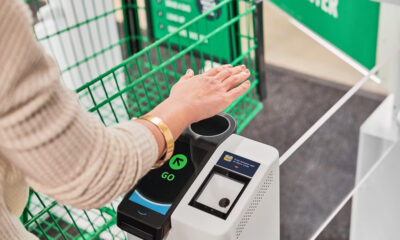News
UAE Phishing Emails Up 77% Last Quarter, Kaspersky Says
Frequently used tactics included know-your-customer messages, free money offers, unusual email login activity and undelivered parcel warnings.

The United Arab Emirates saw a steep rise in emails containing phishing threats during the 2nd quarter of 2023.
The volume of scam emails increased by 77% compared to previous quarters, according to cyber threat experts Kaspersky, who also noted that illicit tactics were becoming more sophisticated.
The most prevalent phishing scams in the Middle East, Turkey, and Africa included emails involving undelivered parcels, know-your-customer messages, unusual email login activity warnings, and free money offers.
Known as social engineering scams, these tactics trick users into taking action by pretending to come from a trusted source. Once someone clicks a link in a phishing email, they will often be vulnerable to threats from malware or ransomware, which can cause significant harm to individuals and enterprises.
In January, the UAE Telecommunications and Digital Government Regulatory Authority warned consumers to be on alert for scam text messages appearing to come from well-known courier companies, including DHL Express, Emirates Post, and Aramex, as they could be phishing scams.
“Once a cybercriminal understands what motivates an individual’s actions, they try to exploit their lack of knowledge and manipulate their behavior to meet the end goal,” said Kaspersky in its recent report.
Also Read: The Largest Data Breaches In The Middle East
In 2022, many scams involved emails containing fake links to free streaming of things like Netflix’s Stranger Things, The Batman movie, and the FIFA World Cup.
“There is no aspect of our life that cybercriminals cannot exploit. Human behavior and emotion is no exception,” explained Maher Yamout, lead security researcher at Kaspersky.
“These scams are a result of manipulation based on fear, curiosity, and greed. The key takeaway is to pay attention to basic details in emails before responding, even if they are from trusted sources because one wrong click can lead to harsh consequences,” the report also said.
News
Mamo Completes $3.4M Funding Round To Enhance Fintech Services
The startup will use the influx of cash to expand into Saudi Arabia and across the wider GCC while improving its product offering.

UAE-based fintech Mamo has announced the completion of a $3.4 million funding round that will help the startup extend its market presence and improve its product offering. Investors included 4DX Ventures, the Dubai Future District Fund and Cyfr Capital.
Mamo’s platform offers “payment collection, corporate cards and expense management” to help small and medium-sized businesses consolidate and streamline their operations. With the latest influx of capital, Mamo will further develop its comprehensive suite of services and begin testing its product lines in Saudi Arabia, further extending its footprint across the GCC.
Imad Gharazeddine, co-founder and CEO of Mamo, stated: “We’ve been in the market for a while now and are incredibly proud of what our team has achieved. The holistic and expansive nature of our product offering has helped us continue to grow sustainably. This additional funding will allow us to reach our medium-term goals even faster. The support from new and existing investors is a testament to our strong expertise and the ability to deliver on our customer promise”.
Daniel Marlo, General Partner of lead investor 4DX Ventures, added: “We have immense trust in Imad’s vision, leadership and Mamo’s innovative approach to provide a user-friendly and comprehensive financial solution for SMEs that makes financial management more accessible and efficient. We are proud to partner with them and support their mission”.
Also Read: A Guide To Digital Payment Methods In The Middle East
Amer Fatayer, Managing Director of Dubai Future District Fund’s investment team, also commented: “Mamo’s localized product lines serve as an infrastructure for SME payments and spend management in UAE, a segment that is underserved by the country’s current banking infrastructure. The team has taken a product-first approach to consolidating SMEs’ financial journeys and building a fintech solution deeply embedded in a business’s core operations”.
To date, Mamo has raised around $13 million in investment funding and now boasts a team of 30 people. The company’s intuitive financial services platform has allowed over 1,000 businesses to consolidate their financial operations and significantly reduce payment fees.
-

 News4 weeks ago
News4 weeks agoAmazon Prime Day 2024: Get Ready For 6 Days Of Amazing Deals
-

 News4 weeks ago
News4 weeks agoSamsung Unpacked 2024: What To Expect From The July 10 Event
-

 News4 weeks ago
News4 weeks agoCoursera Report Shows Surge In UAE Interest In AI Upskilling
-

 News4 weeks ago
News4 weeks agoMeet Dubai’s Groundbreaking Smart Robot Delivery Assistant













